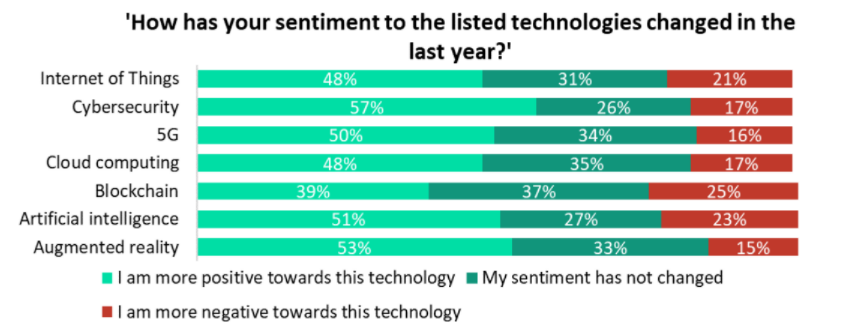COVID-19 has had an unprecedented impact on the aviation industry, and airports have faced a multitude of challenges. As travel demand increases through the world’s commercial airports, technology adoption must be utilised to enhance and streamline the passenger experience.
Airports in the age of COVID-19
As COVID-19 spread, demand plummeted for both domestic and international travel. According to GlobalData, international departures worldwide fell by 71.8%, from 2019 to 2020. Similarly, airport footfall decreased as domestic and international restriction were implemented globally, and COVID-19 made people uneasy about travelling.
Nevertheless, as border controls begin to ease and travel resumes, the airport experience is likely to change. International departures are predicted to increase, exceeding pre-pandemic levels by 2024 (CAGR 21-24: 22.7%), according to GlobalData forecasts. Airports must be prepared to welcome returning passengers and technology could support a smoother return to normal. The global public health crisis has ushered in an assortment of new protocols and requirements for passengers. Vaccine passports, COVID-19 testing, passenger locator forms, compulsory facemasks, and comprehensive deep cleaning routines are all common. Whilst these necessary measures may appear cumbersome, technological advancements will likely benefit passengers by making the airport experience more convenient, streamlined, and safe.
Technology will underpin the passenger airport experience
Airports are no stranger to technological advancements. Artificial intelligence (AI), which encompasses facial recognition and biometric technology, have long been utilised in airports to allow travellers to navigate security and self-board. Introduction of such technologies have already benefitted users and facilitated a contactless experience. COVID-19 has accelerated the implementation of biometrics. Most recently, Delta Air Lines has expanded digital identity recognition to Atlanta, mitigating the need for paper boarding passes or physical ID. This measure offers passengers a more efficient way to navigate the airport.
How well do you really know your competitors?
Access the most comprehensive Company Profiles on the market, powered by GlobalData. Save hours of research. Gain competitive edge.

Thank you!
Your download email will arrive shortly
Not ready to buy yet? Download a free sample
We are confident about the unique quality of our Company Profiles. However, we want you to make the most beneficial decision for your business, so we offer a free sample that you can download by submitting the below form
By GlobalDataAs AI becomes more sophisticated, the airport experience will likely become even more futuristic. For instance, Dubai Airport have invested in various initiatives using AI technology to assist in baggage handling and airport security. Including an AI-powered security system, negating the need for immigration officers, or removing shoes and belts at check points. Travellers walk through a small, smart tunnel, starring a virtual aquatic experience. Whilst looking at the surrounding swimming schools of fish, cameras can see every angle of the passenger’s face offering rapid identification and a swifter, non-stop journey. Further innovations will seek to facilitate a ‘queue-less experience’, much to the benefit of enabling a speedier airport experience for travellers.
Artificial Intelligence is met positively
Technology is already pervasive within airports, and further advancements promise the ubiquitous presence of technologies such as AI. A Global Data poll* revealed that 51% of respondents felt more positive towards AI technology. However, the same poll displayed some resistance towards technological adoption as 23% of respondents felt more negative towards AI in the past year. Indeed, as technology and travel become increasingly intertwined, some will still prefer the human element of interpersonal communication. This may be especially true as COVID-19 health and safety regulations and border restrictions have added additional complexities, which require a more personable approach.
Whilst technology will likely remain complementary to personal interaction, advancements in AI have the potential to benefit end users. Every aspect of the passenger experience within airports will likely entail some degree of interaction with technology. With these tools, the passenger experience can be an enjoyable, stress-free, and smooth experience.











Related Company Profiles
Delta Air Lines Inc